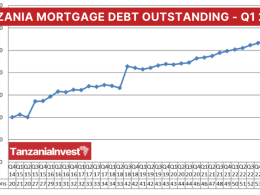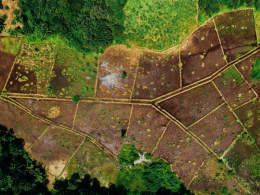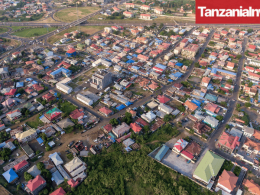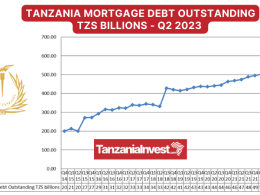Victory Attorneys & Consultants offer legal insights to foreign investors on the modalities and procedures for acquiring land and property in mainland Tanzania, as well as obtaining residence through these acquisitions.
Victory Attorneys & Consultants is a legal powerhouse dedicated to providing services to a diverse clientele across different industries such as Tourism, ICT, Real Estate & Commercial Properties, Construction and other infrastructure ventures, Oil & Gas, Aviation, Manufacturing, Energy, Mining, Gaming, Finance, Health, Not-for-profit, Telcom, Environment and Carbon Trading.
Land Ownership in Tanzania
Land in Tanzania is not the private property of a person. All land is public property entrusted to the President of the United Republic of Tanzania on behalf of its citizens (Sect.4(1) of the Land Act Cap.113 R.E 2019).
Therefore, land ownership by any person in Tanzania is by way of a leasehold system. Under this modality, any person whether citizen or foreigner may own/possess the land and be granted the right to use the same for such period of time say 33 years, 66 years or 99 years of lease renewable.
However, the procedure of land acquisition by foreign persons is a bit different from those applied to citizens as elaborated herein below.
Categories of Land in Tanzania
In Tanzania, the land is classified into three categories namely General Land, Village Land, and Reserved Land.
General Land
General Land is all public land that is not declared to be reserved land or village land (Section 2 of the Land Act). It includes unoccupied or unused village land.
General land is considered to be 2% of the land of Tanzania, mainly under urban use and supporting around 20% of the population.
General land is under the management of the Commissioner for Land. The Right of Occupancy may be granted to any citizen of Tanzania (individual or corporate) upon application for any designated use.
A foreign investor may be granted the derivative right of occupancy for investment activities through the Tanzania Investment Center (TIC).
Village Land
This is the land which has been declared to be village land under the Village Land Act Cap.114 R.E 2019.
Village land consists of the land within the boundaries of a village registered under the Local Government (District Authorities) Act, the land designated as village land under the Land Tenure (Village Settlement) Act 1965, the land other than reserved land which the villagers have, during the twelve years prior to the year 1999, been regularly occupying and using as village land.
Village land is considered to be 70% of the land of Tanzania, supporting 80% of the population.
The administration and management of village land are vested in local government organs namely the Village Council, the Village Assembly, and the Land Adjudication Committee. Customary Right of Occupancy is granted to occupiers.
A foreign investor may acquire village land for investment by buying a piece of land from the villagers or the Village Council. However, such land should be changed from village land to general land.
Thereafter, the process of registration is done through TIC which will issue a derivative title to the investor.
Reserved Land
Reserved land is that land reserved, designated, or set aside for conservation, national parks, marine parks, urban planning, road reserve, public recreation grounds, hazardous land and land reserved for public utilities.
Forests, national parks, and game reserves make up 28% of the total reserved land in Tanzania.
Reserved lands are governed by a number of laws but the Commissioner for Land has ultimate powers of allocation of reserved land.
It is important to note that the President of the United Republic of Tanzania can transfer land between all three categories depending on government policies, general planning or upon application by interested persons including investors.
Land Acquisition Process for Foreign Investors
Foreign investors acquire land in Tanzania for a number of purposes such as establishing industries and developing housing, hotels, mining, and agriculture projects.
Land acquisition and registration can be done in either of the following ways:
Granted Right of Occupancy
This is with respect to general land and is issued under the Land Act and Land Registration Act. A Title Deed with respect to a specified land is issued by the Commissioner for Land to a person to occupy and use the land for a term of 33, 66 or 99 years. The lease period is renewable.
The Granted Right of Occupancy is issued to Tanzanian citizens and local companies.
Foreign investors may be issued with the Granted Right of Occupancy provided that they are a company with local shareholders retaining 51% of the shares.
A body corporate registered in Tanzania whose majority shareholder or owners are non-citizens is considered to be a foreign company (Sect.20(4) of the Land Act).
Customary Right of Occupancy
This is issued under the Village Land Act by the Village Land Council. The land under the customary right of occupancy is not subject to allocation by the Village Council since it has already been occupied.
Foreign Investors may acquire any part of village land by buying it from the owners or by buying vacant land from the Village Council.
After the investor has purchased the land from the village, the process of conversion of land to general land should be done whereby the land will be registered under TIC and a derivative right of use will be issued to the investor.
Derivative Right of Occupancy
This is the right to occupy and use the land created out of a Granted Right of Occupancy and includes a lease, a sub-lease, a license, a usufructuary right and any interest analogous to those interests.
Section 20(1) of the Land Act provides that a non-citizen of Tanzania shall not be allocated or granted land unless it is for investment purposes under the Tanzania Investment Act, 2022. It was intended that the land for investment purposes be identified, gazetted, and allocated to TIC by way of the right of occupancy.
TIC grants a derivative right of occupancy to the foreign investor. The derivative right may be granted for a period of 10 days less than the period (years) for which the granted right of occupancy has been granted.
Therefore, if TIC has a Granted Right Occupancy of 99 years, the investor will be given a derivative right of occupancy of 99 years less 10 days.
Procedures For Acquisition Of Derivative Right Of Occupancy
Registration of the Investment Project with TIC
The application for a Certificate of Incentive is done in terms of Section 17 of the TIC Act.
It is important to know that, before TIC can proceed to issue a Derivative Right of Occupancy, the foreign investor must have already registered his investment project in accordance with the Tanzania Investment Act, 2022 and a Certificate of Incentives must have been issued.
It is advised that once the investor has located the land and after having been assured of its acquisition, he must proceed to register with the TIC and get a Certificate of Incentive.
The certificate of incentives is given to the investor who has a capital investment of not less than USD 500,000.
Land Acquisition Process
The land acquisition involves a number of steps especially when the intended land is village land. Investors are advised to seek the service of an attorney to guide them through the process.
If the investor has not spotted any piece of land, is advised, through his attorney, to make an inquiry to TIC specifying his area of interest and his desire to acquire land in a certain locality. TIC normally provides a list of available land whether government (TIC) owned or privately owned and advises accordingly.
If the land required is village land, application for acquisition is done through the local government in which the intended land is located. The Local Government will identify the land and provide the intended buyer with the requirements, contracts will be signed, and payments made under the supervision or through the Local Government Authority.
After the purchase process is done, the process of conversion of village land into general land is to be done in association with the local government, the investor and TIC (the facilitator). Upon conversion, the land will be registered under TIC for 33, 66 or 99 years and TIC will grant the derivative right to the investor for the same period less 10 days.
It is important to note that the process of change of land use from village land to general land takes a long time say a year or so. However, during this period, the investor is allowed to occupy and use the land.
The process of granting the derivative right to investors in respect of land which is already registered under TIC takes a short period say 3 to 4 months only.
Other Forms of Land Acquisition
Foreign investors have other options through which they can acquire land for their investment purposes.
These options include a long lease arrangement whereby a foreign investor signs a lease agreement with local landowners for the most part of the term of the right of occupancy.
The second option is to register the company jointly with Tanzanian(s) and allow them to retain 51% of the shares to allow the company to be a local company.
Residence in Tanzania for Foreign Investors Via The Acquisition of Land and Real Estate
Introduction
On June 30, 2023, the Tanzanian Minister of Home Affairs published the Immigration (Amendment) Regulations, 2023, via GN. No. 428 of 2023, hereinafter referred to as “the Regulations.” These amendments introduce significant changes to various immigration matters, with a special emphasis on the issuance of resident permits in Tanzania.
Understanding these regulatory changes is crucial for anyone looking to acquire land, invest in real estate, or obtain residence in Tanzania.
Changes: Class C-11 Residence Permit
The Second Schedule to the Regulations introduces residence permit class C-11, allowing a foreigner to acquire a residence permit class C by purchasing a house worth USD 100,000 in Tanzania.
Typically, residence permit class C is granted to foreigners who do not qualify for residence permits class A and B. Class A is issued to investors, while class B is issued to employees. Class C is designated for students, interns, researchers, parties and witnesses in courts and tribunals, individuals attending medical treatments, NGO employees, retired persons, volunteers, and artists.
The new regulations add “buyers of real estate” to the list of individuals eligible for residence permit class C. According to Regulation 2, which amends the principal regulations, foreigners who do not qualify for residence permit class A or B, and are not students, interns, researchers, witnesses, patients attending medical treatments, or others previously eligible, can now obtain residence permit class C-11 by purchasing a house worth USD 100,000.
Legal Implications on Immigration and Investment Laws
Under the Regulations, a foreign individual can stay, acquire, and own land in Tanzania through residence permit class C-11 without being an investor (shareholder) with a resident permit class A and a certificate of incentives from the Tanzania Investment Centre (TIC).
According to the Regulations, the applicant of residence permit class C-11 is required to have;
- Police clearance form from the country of origin or place of residence;
- Tax clearance from relevant institutions;
- A recommendation letter from the Tanzania Investment Center (TIC) in Mainland Tanzania (and the Zanzibar Investment Promotion Authority (ZIPA) in the case of Zanzibar);
- Proof that the value of the purchased property is not less than USD 100,000;
- A title deed or certificate of occupancy must be submitted.
Paradoxically, Section 20(1) of the Tanzanian Land Act, the principal legislation governing land matters, limits land ownership to Tanzanian citizens only. Foreigners can own land in Tanzania solely for investment purposes through derivative rights granted by the Tanzania Investment Center (TIC) or the Export Processing Zones Authority (EPZA). This is the only permissible way for a foreigner to own land in Tanzania.
To obtain a certificate of incentives from TIC for projects wholly owned by foreign investors or joint ventures, the minimum fixed investment capital required is USD 500,000. Similarly, EPZA requires a minimum capital of USD 500,000, with the investment located within special economic zones and at least 80% of goods produced intended for export.
However, the current Regulations create a legal implication by allowing a foreigner/non-citizen to own land in Tanzania without needing a certificate of incentives from TIC or EPZA and a residence permit class A (investor’s permit).
This contradicts the principal legislation (the Land Act, Cap 113). In other words, under the current regulations, a foreigner can own landed property and reside in Tanzania without going through TIC or EPZA, unlike before. This presents an apparent conflict between the regulations and the principal legislation on land matters.
The regulations seem to be inapplicable to some extent and in apparent conflict with the principal legislation, specifically Section 20(1) of the Land Act and Section 19 of the Tanzania Investment Act.
The requirements for a foreigner to own land in mainland Tanzania are unclear. It is uncertain whether the amended regulations or the principal legislation will take precedence. The regulations are limited, particularly concerning the transfer of land to a foreigner in Tanzania. This creates challenges in facilitating a successful transfer of land without violating the principal legislation, skipping necessary procedures, or facing objections from the Commissioner for Land.
To acquire land in mainland Tanzania, a foreign investor typically uses one of three available avenues described earlier in this article: obtaining derivative rights from the Tanzania Investment Centre (TIC), securing a government-granted right of occupancy, or subleasing.
The standard process for obtaining derivative title through land purchasing involves filing specific forms outlined in the Land Regulations of 2001, namely Form No. 29, Form No. 30, and Form No. 35. The title of the purchased land is then surrendered, and the land is designated for investment purposes through Form No. 1. The National Land Allocation Committee allocates the land to TIC, registers it in the name of TIC, and TIC issues a derivative right to the respective investor.
The hardship that most practitioners have encountered and foresee is evident in the whole process of purchasing land from the locals in order to transfer it to a foreigner before he/she processes the recommendation letter from the Tanzania Investment Centre as provided under the regulations. There are several issues not addressed under the Land Act and its regulations, such as:
- Acceptance of Land Transfer: It is unclear whether the Commissioner for Land will accept the transfer of land to a non-citizen for the purpose of residence without it passing through the National Land Allocation Committee, which is a common practice in granting derivative rights.
- Category of Tenure: There is uncertainty regarding what category of tenure the Commissioner for Land will grant to non-citizens who purchase land solely for residence. The Granted Right of Occupancy (GRO) and Customary Right of Occupancy (CRO) are typically enjoyed by citizens only, while Derivative rights are issued to investors either through the Tanzania Investment Centre or Export Processing Zones Authority. In both cases, the investor must be registered with these Authorities. However, under the amended regulations, the foreign real estate buyer requires only a recommendation letter to obtain the Residence permit.
- Purpose of Land Acquisition: The regulations are silent on whether the acquisition of land for residence permit C-11 is limited to residential use only or includes other usages.
Contacts
These ambiguities pose significant challenges in the process of acquiring and transferring land to foreigners in Tanzania, potentially conflicting with established practices and regulations. For expert guidance on land acquisition and residence permits in Tanzania, Victory Attorneys & Consultants can provide further advice. For additional details visit https://victoryattorneys.co.tz, write to info@victoryattorneys.co.tz, or call/WhatsApp: +255 752 089 685.










